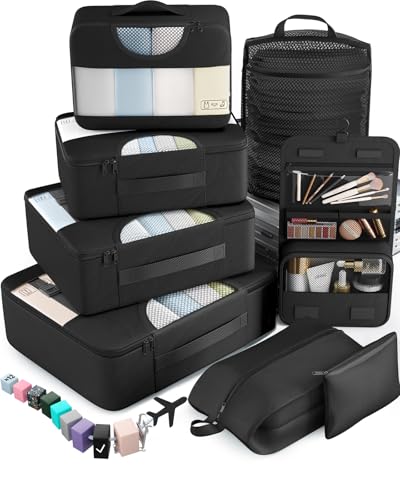In Uganda, they use Type G power plugs and outlets. The voltage is 240V, and the frequency is 50Hz.
⚠️ So, you’ll need a travel adapter in Uganda. Their plugs and outlets are different from the Type A and B ones we use back in the States.
Quick Overview of the Plugs in Uganda:
- Plug type in Uganda: G
- Standard voltage: 240V
- Frequency: 50Hz
- Need a travel adapter? Yes, you do need a travel adapter
- Need a voltage converter? It varies by device — check the label
- Recommended plug adapter: One Beat Travel Plug Adapter
We’ve verified this information using official data from local power authorities, global IEC standards, and real-world experiences shared by travelers.
Power Outlets in Uganda
In Uganda, they use Type G power plugs and outlets.
Type G

Type G outlets have three rectangular prongs in a triangular layout and built-in fuses. Other plug types won’t fit without an adapter.
The Only Travel Adapter You’ll Need in Uganda
The wrong adapter can mean slow charging, device damage, or no power at all. We don’t sell travel adapters, but we’ve found the best one for Uganda by looking at voltage, safety, and compatibility. Here’s our top pick:
Recommended Travel Plug Adapter
by 2,000+ travelers on Amazon
If you’re already abroad and realized you left your adapter at home, don’t stress. You can usually find one at the airport or a local store.
Next time, it’s worth packing one ahead of time—saves time, hassle, and you’ll get one that actually works.
People visiting Uganda often continue on to Kenya, Tanzania, and Rwanda. Always check which adapter you’ll need for each country.
Do You Need a Voltage Converter?
Since the voltage in Uganda doesn’t match the U.S. standard of 120V, you’ll likely need a voltage converter to avoid damaging your devices.
Before using your electronics in another country, always check the voltage rating on the label. If it reads “100-240V, 50/60 Hz”, it will work on both 120V and 220-240V power sources without a converter. This is standard for tablets, laptops, cameras, and rechargeable grooming devices.

Which Travel Devices May Need a Converter?
Not sure which voltage converter to get? Take a look at the best-rated ones right here.
| Device | Need Converter? | Notes |
|---|---|---|
| Phone | ❌ No (usually) | Most modern phone chargers are dual voltage (100–240V) |
| Laptop | ❌ No (usually) | Check the power brick label for 100–240V |
| Hairdryer | ✅ Yes (often) | High wattage; many models are not dual voltage |
| Electric toothbrush | ⚠️ Check voltage | Some models are 110V only |
| Camera / DSLR | ❌ No (usually) | Most chargers are dual voltage |
| Power bank | ❌ No | Charges via USB, adapter is enough |
| Electric shaver / trimmer | ⚠️ Check voltage | Older or cheaper models may not support 230V |
| Tablet / iPad | ❌ No | All models are dual voltage |
| Portable fan | ✅ Yes (sometimes) | Many models are not compatible with 230V |
| Game console | ⚠️ Check voltage | Newer consoles like PS5 and Xbox are often dual voltage — check to be sure |
| Bluetooth speaker | ❌ No (usually) | Charges via USB |
| E-reader (Kindle, etc.) | ❌ No | USB charging only, no converter needed |
Top Travel Essentials to Pack
Experienced travelers know: the right gear makes a difference. These handy items can save time and frustration.
Digital Luggage Scale
Packing Cubes
Power Bank
No products found.
More About Uganda
In recent years, Uganda has welcomed over a million international visitors annually—and tourism revenue continues to climb steadily. It’s one of East Africa’s rising stars, often overlooked but deeply rewarding. Visitors are drawn by its extraordinary wildlife: mountain gorillas in Bwindi, tree-climbing lions in Queen Elizabeth National Park, chimpanzees in Kibale, and massive herds of elephants and hippos across its many reserves. The landscapes shift from lush highlands to wide savannas and dramatic volcanic mountains—perfect for outdoor lovers.
Lake Victoria, the source of the Nile, is great for sunset cruises and local fishing culture, while the Rwenzori Mountains challenge serious hikers with snow-capped peaks on the equator. Local communities are welcoming and often invite travelers into homestays or cultural tours that are truly immersive. With conservation-minded lodges and smaller crowds than neighboring countries, Uganda offers a more intimate safari experience that still feels wild and raw. You’re not just a visitor—you’re part of the story.
For Americans, Uganda is full of surprises in all the best ways. English is widely spoken, people are warm and helpful, and the country feels adventurous but manageable. Travel is more affordable than in neighboring countries, and the vibe is one of discovery, not tourism fatigue. Whether you’re trekking gorillas, paddling down the Nile, or dancing in Kampala, Uganda leaves a mark that’s hard to shake—and easy to fall for.



